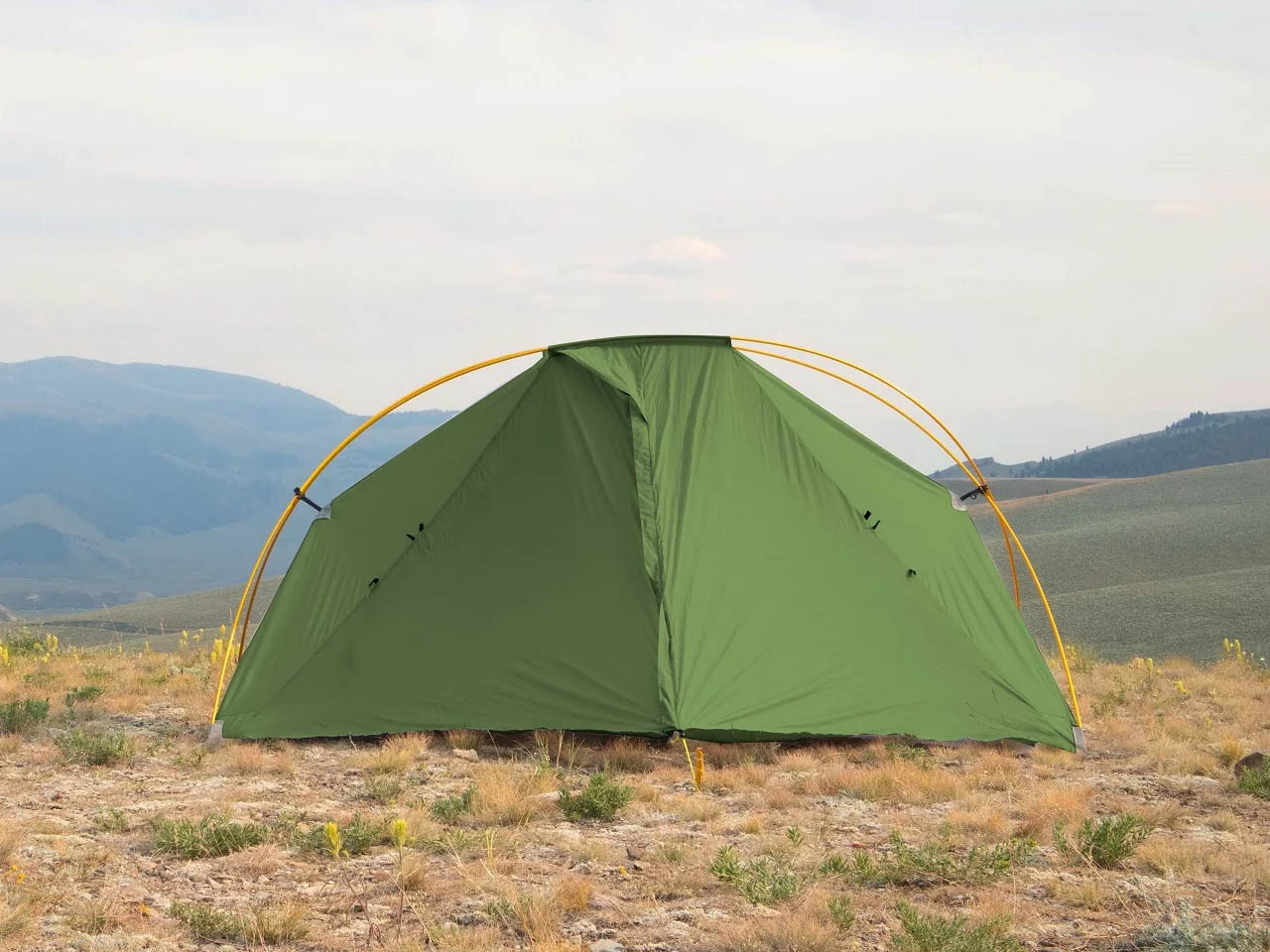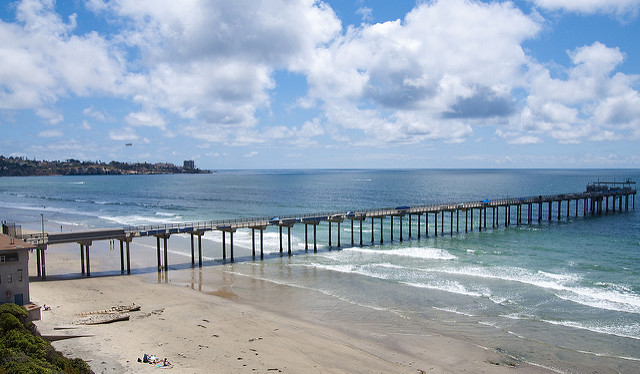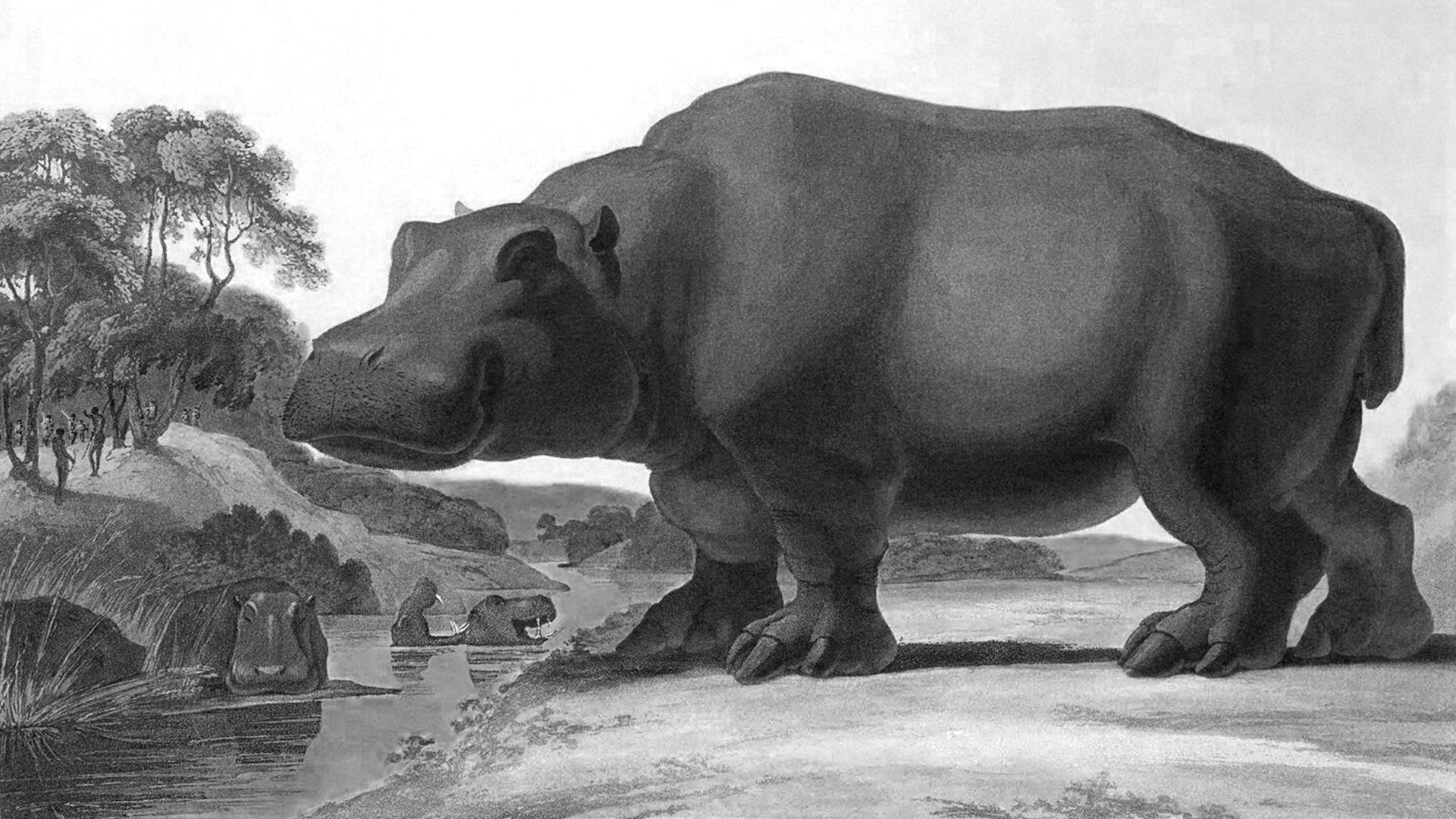Top 15 National Parks to Visit in the USA
Discover the USA's top 15 national parks, from stunning coastlines to majestic mountains. Immerse yourself in unique landscapes, diverse wildlife, and vibrant ecosystems. Ideal for explorers and those seeking tranquility, these parks offer unforgettable experiences. Plan your adventure now and connect with America's natural wonders.
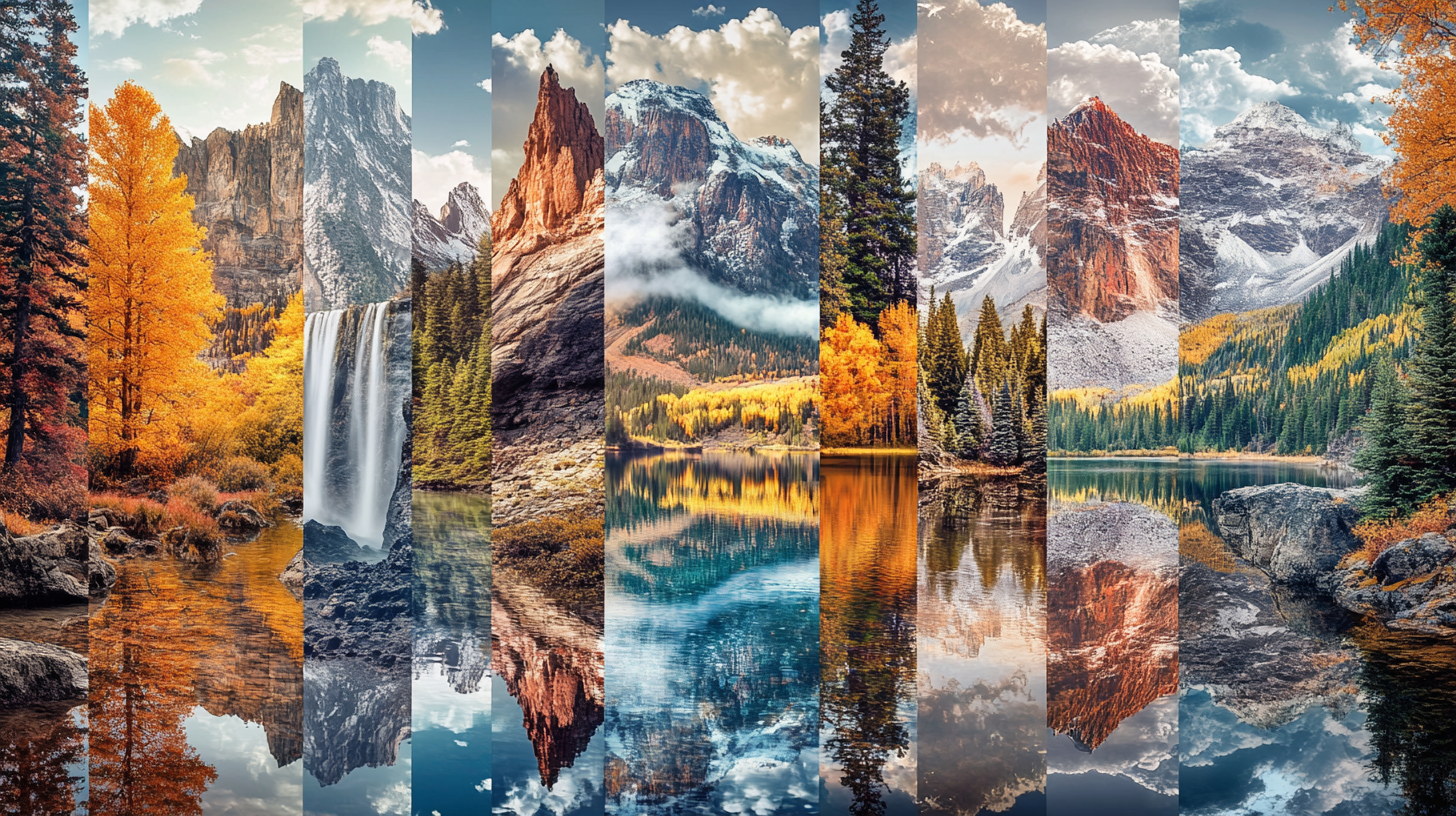
The United States is home to 63 national parks, each offering a unique blend of breathtaking landscapes, diverse wildlife, and rich cultural heritage that tells the story of America’s natural wonders. These protected lands attract millions of visitors annually, providing unparalleled opportunities for adventure, relaxation, and a deep connection with nature’s splendor. From the soaring peaks of majestic mountains and the rugged beauty of untamed coastlines to the tranquil serenity of dense forests and the stark allure of arid deserts, there’s a national park to suit every traveler’s dream. Whether you are a seasoned explorer or embarking on your first outdoor adventure, these national treasures beckon with promises of unforgettable experiences, as detailed in Comprehensive Guide to America’s National Parks . Here are the top 15 national parks you should consider adding to your bucket list.
1. Olympic National Park, Washington
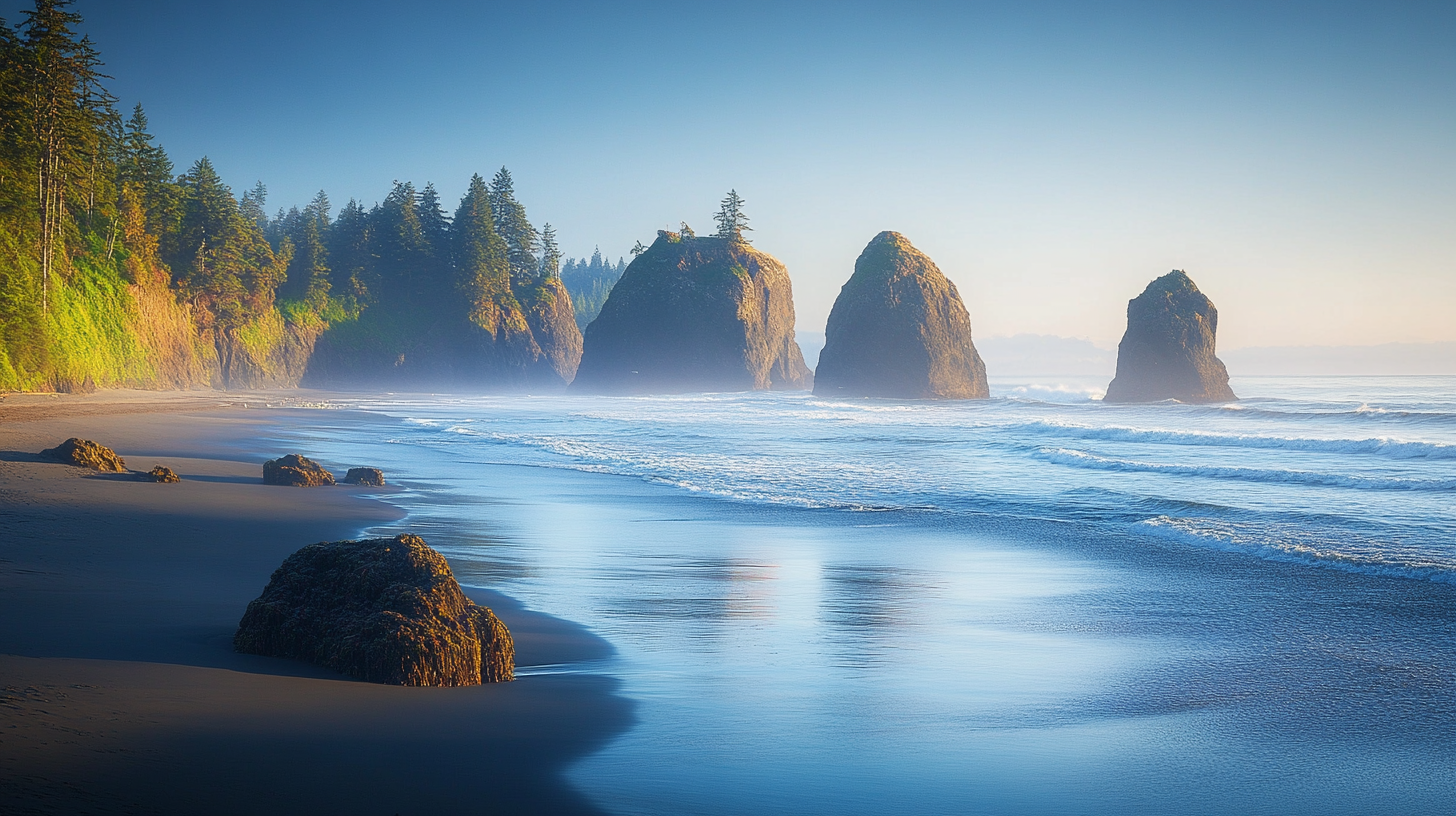
Ranked as the number one national park in 2024 by Jim and Will Pattiz, Olympic National Park stands as a true jewel of the Pacific Northwest. Its remarkable diversity creates an almost otherworldly experience, as visitors traverse from rugged coastlines kissed by the crashing waves of the Pacific, through the emerald depths of temperate rainforests dripping with moss and ferns, and upwards to glacier-capped mountains piercing the sky. This convergence of ecosystems within a single park is unparalleled, offering a microcosm of natural beauty that captivates all who venture here, as explored in The Ultimate Guide to Olympic National Park’s Diverse Ecosystems .
- Diverse Landscapes: Wander through the lush depths of the Hoh Rainforest, one of the finest remaining examples of temperate rainforest in the United States, where ancient trees tower overhead and every surface is draped in vibrant green moss. Hike the alpine meadows of Hurricane Ridge, where wildflowers bloom in a riot of colors against the backdrop of snow-capped peaks. Or stroll along the wild Pacific beaches, such as Ruby Beach, where sea stacks rise from the mist and tide pools teem with marine life.
- Lesser Crowds: Despite its breathtaking beauty, Olympic National Park remains a haven for those seeking solitude in nature. The vastness of the park and the diversity of its landscapes mean that even during peak seasons, visitors can find quiet trails and secluded spots, allowing for a more personal and immersive experience.
- Recreational Activities: The park offers a wealth of activities for outdoor enthusiasts, as detailed in Guide to Outdoor Adventures in Olympic National Park , from hiking through enchanted forests to camping under a canopy of stars. Along the coastline, tide-pooling reveals a hidden world of colorful starfish, anemones, and other sea creatures, making every visit a discovery.
2. Mount Rainier National Park, Washington
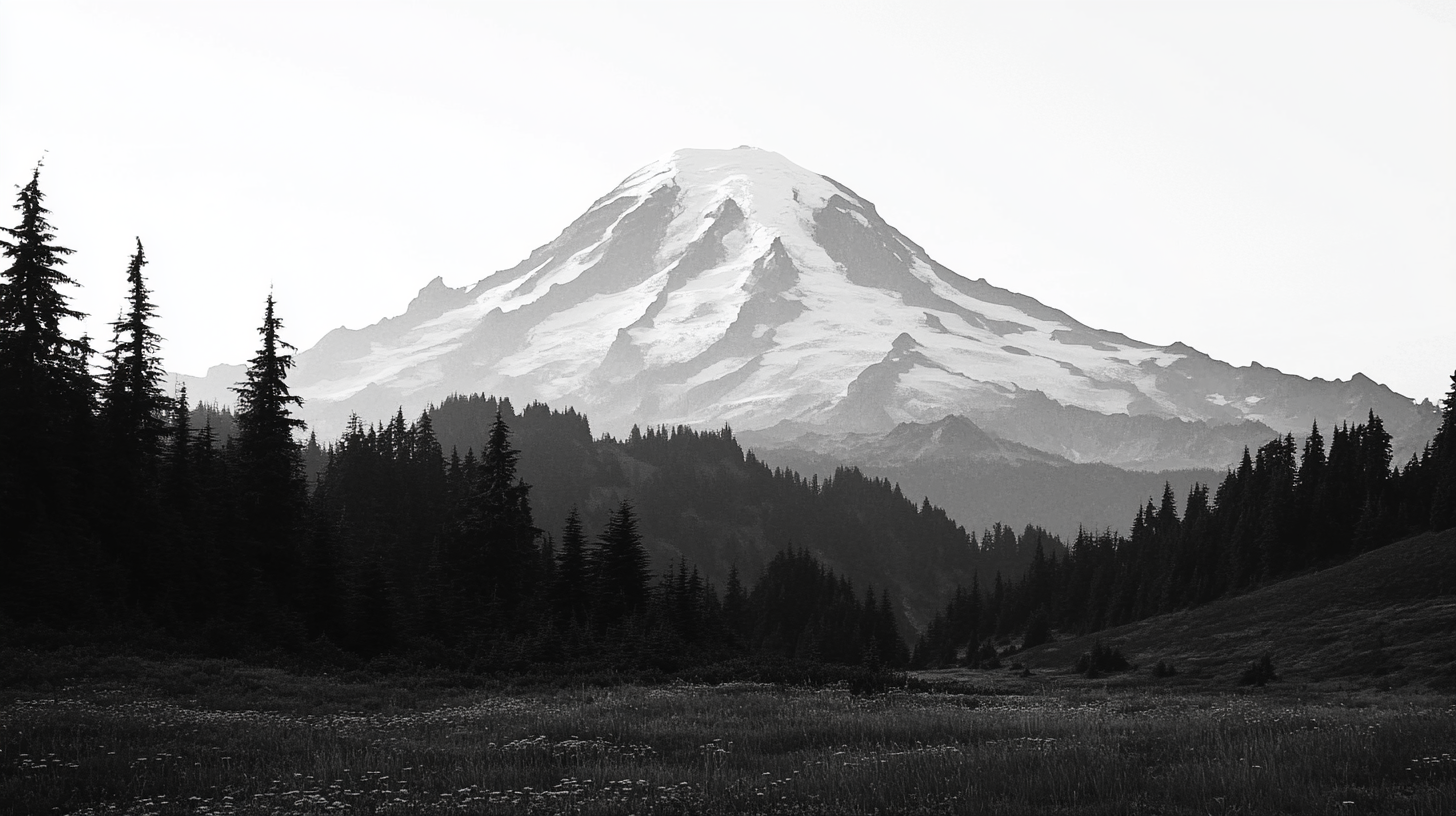
Climbing to the second spot in the Pattiz Brothers’ rankings, Mount Rainier National Park boasts the iconic Mount Rainier, an active stratovolcano and the most glaciated peak in the contiguous U.S. The mountain’s massive presence dominates the skyline, offering a breathtaking backdrop for the park’s diverse landscapes.
- Stunning Scenery: Revel in panoramic views of wildflower-filled meadows in the Paradise area, aptly named for its stunning beauty. Ancient forests with towering evergreens blanket the lower slopes, while cascading waterfalls like Narada Falls and Myrtle Falls add to the park’s enchanting allure.
- Outdoor Adventures: With over 260 miles of maintained trails, hikers can explore everything from gentle walks to challenging climbs. The famous Wonderland Trail encircles Mount Rainier, offering a 93-mile journey through varied ecosystems. For the more adventurous, mountaineering expeditions to the summit present an ultimate challenge.
- Visitor Tips: Be mindful of reservation requirements and potential fire-related closures. Planning ahead is essential, especially during peak seasons. Checking current conditions through official channels, such as Mount Rainier National Park Visitor Information , ensures a safe and enjoyable visit.
3. Grand Teton National Park, Wyoming
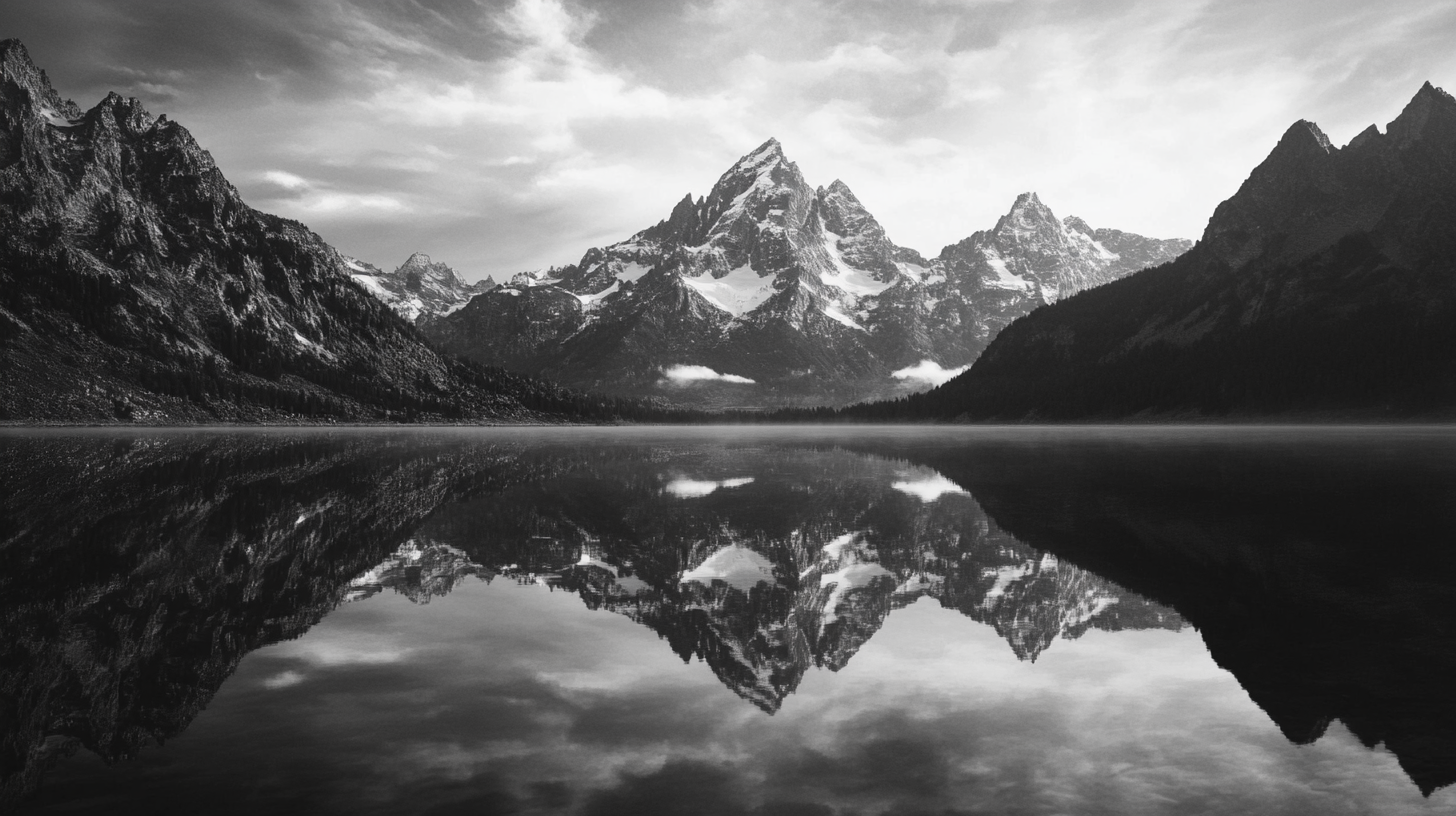
Grand Teton National Park is renowned for its breathtaking mountain landscapes, pristine alpine lakes, and abundant wildlife. The dramatic Teton Range rises abruptly from the valley floor, creating a stunning silhouette that has inspired artists and photographers for generations.
- Iconic Peaks: The jagged peaks of the Teton Range, including the Grand Teton itself, offer some of the most dramatic scenery in the country. Sunrise and sunset cast mesmerizing hues on the mountains, a spectacle often highlighted in Photographer’s Guide to Capturing Grand Teton .
- Wildlife Watching: The park is a sanctuary for diverse wildlife. Visitors may spot moose grazing in willow flats, elk herds roaming the valleys, or bears foraging along the forest edges. Birdwatchers can delight in the over 300 species that inhabit the area.
- Recreation: Beyond hiking, the park offers boating on Jackson Lake, fishing in clear mountain streams, and horseback riding through scenic trails. The combination of rugged mountains and serene lakes provides endless opportunities for outdoor activities.
4. Yellowstone National Park, Wyoming, Montana, and Idaho
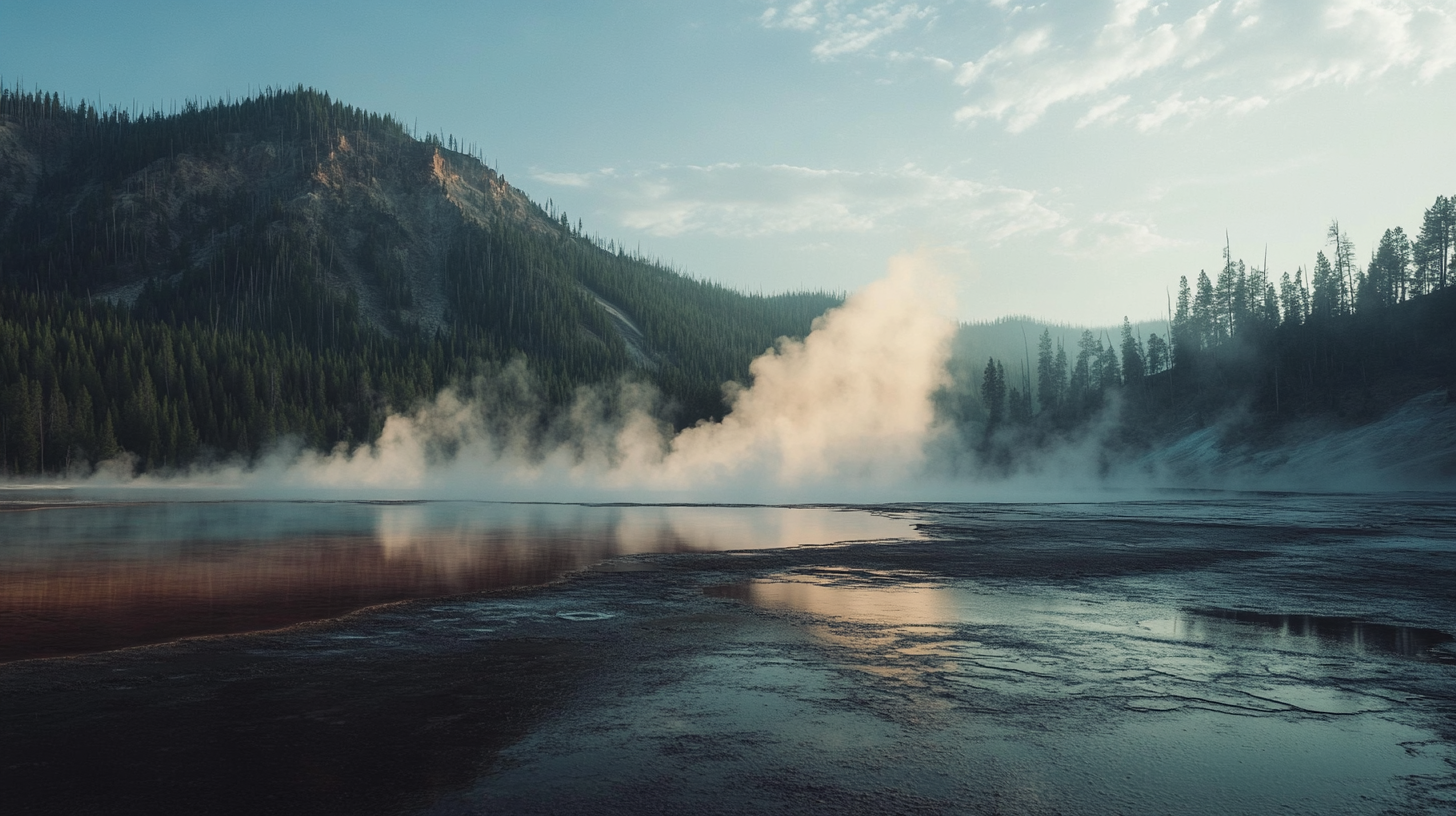
As the world’s first national park, Yellowstone is a treasure trove of geothermal features, diverse ecosystems, and rich history. Its vast landscapes cover nearly 3,500 square miles, encompassing everything from towering mountains to expansive valleys.
- Geothermal Wonders: Witness the awe-inspiring eruptions of Old Faithful and explore the colorful Grand Prismatic Spring, whose vibrant hues result from pigmented bacteria in the mineral-rich waters. The park contains over half of the world’s geysers and countless hot springs, fumaroles, and mud pots.
- Wildlife Diversity: Home to one of the largest nearly intact temperate-zone ecosystems on Earth, Yellowstone hosts bears, wolves, bison, elk, and a variety of other species. The Lamar Valley, often called “America’s Serengeti,” offers prime wildlife viewing opportunities.
- Historical Significance: Established by President Ulysses S. Grant in 1872, Yellowstone’s protection set a precedent for the conservation movement. The park’s history is deeply intertwined with indigenous cultures and early explorers like John Colter, whose tales of its wonders were once thought to be mythical.
5. Yosemite National Park, California
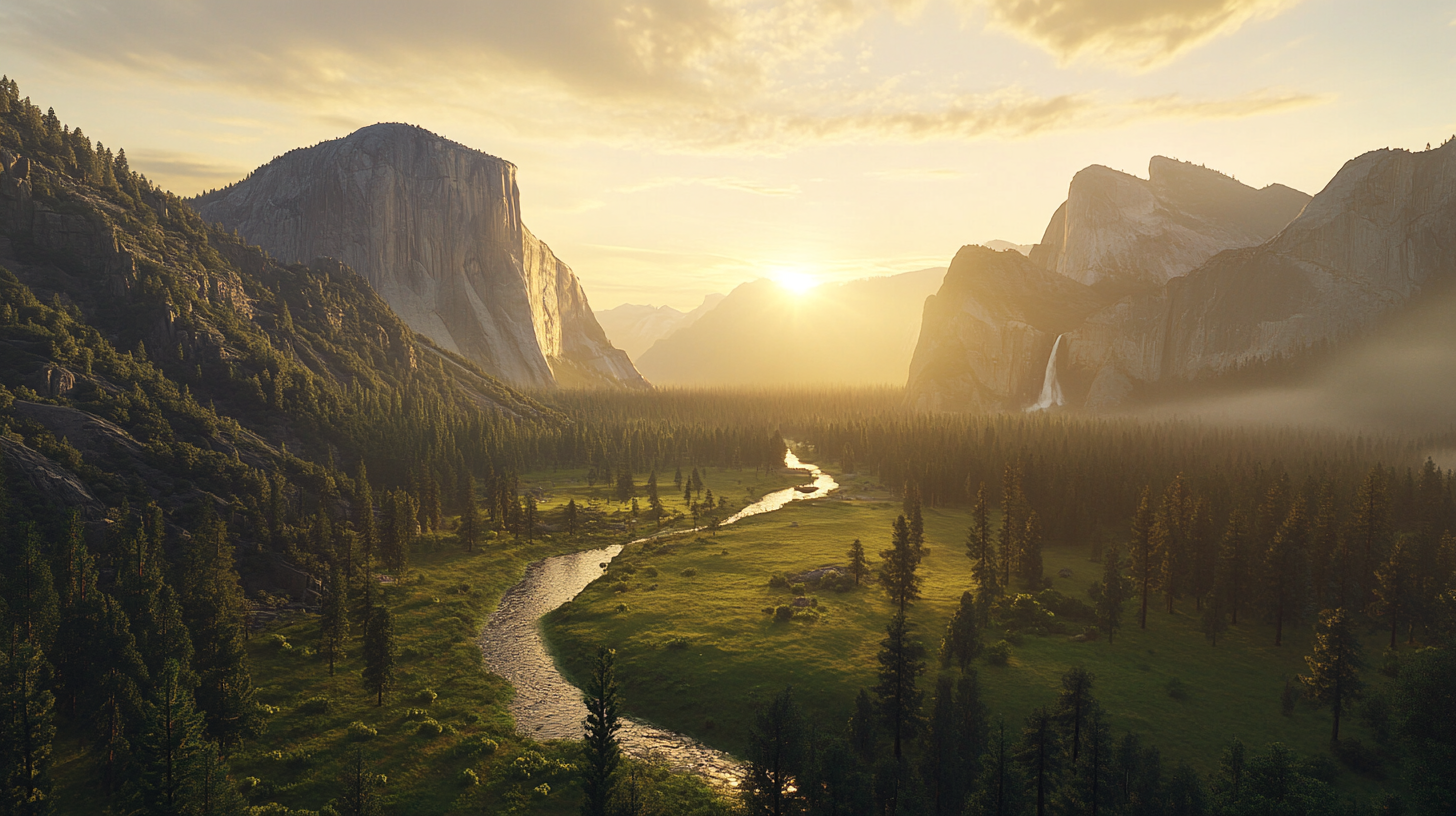
Yosemite is celebrated for its towering granite cliffs, dramatic waterfalls, and giant sequoia groves. Its awe-inspiring natural features have inspired countless visitors, including naturalist John Muir, whose writings helped establish the park.
- Iconic Landmarks: Marvel at El Capitan, the largest exposed granite monolith in the world, and Half Dome, a symbol of Yosemite’s grandeur. Waterfalls like Yosemite Falls and Bridalveil Fall thunder into the valleys below, especially in spring when the snowmelt is at its peak.
- Outdoor Activities: Offering world-class hiking and rock climbing experiences, Yosemite attracts adventurers from around the globe. Climbers test their skills on El Capitan’s challenging routes, while hikers explore trails ranging from easy walks to strenuous backcountry treks.
- Scenic Beauty: Enjoy breathtaking vistas from Glacier Point, where you can gaze across the valley and see iconic formations illuminated by the setting sun. A drive along Tioga Road reveals high alpine meadows and serene lakes, as highlighted in Scenic Drives Through Yosemite’s High Country .
6. Glacier National Park, Montana
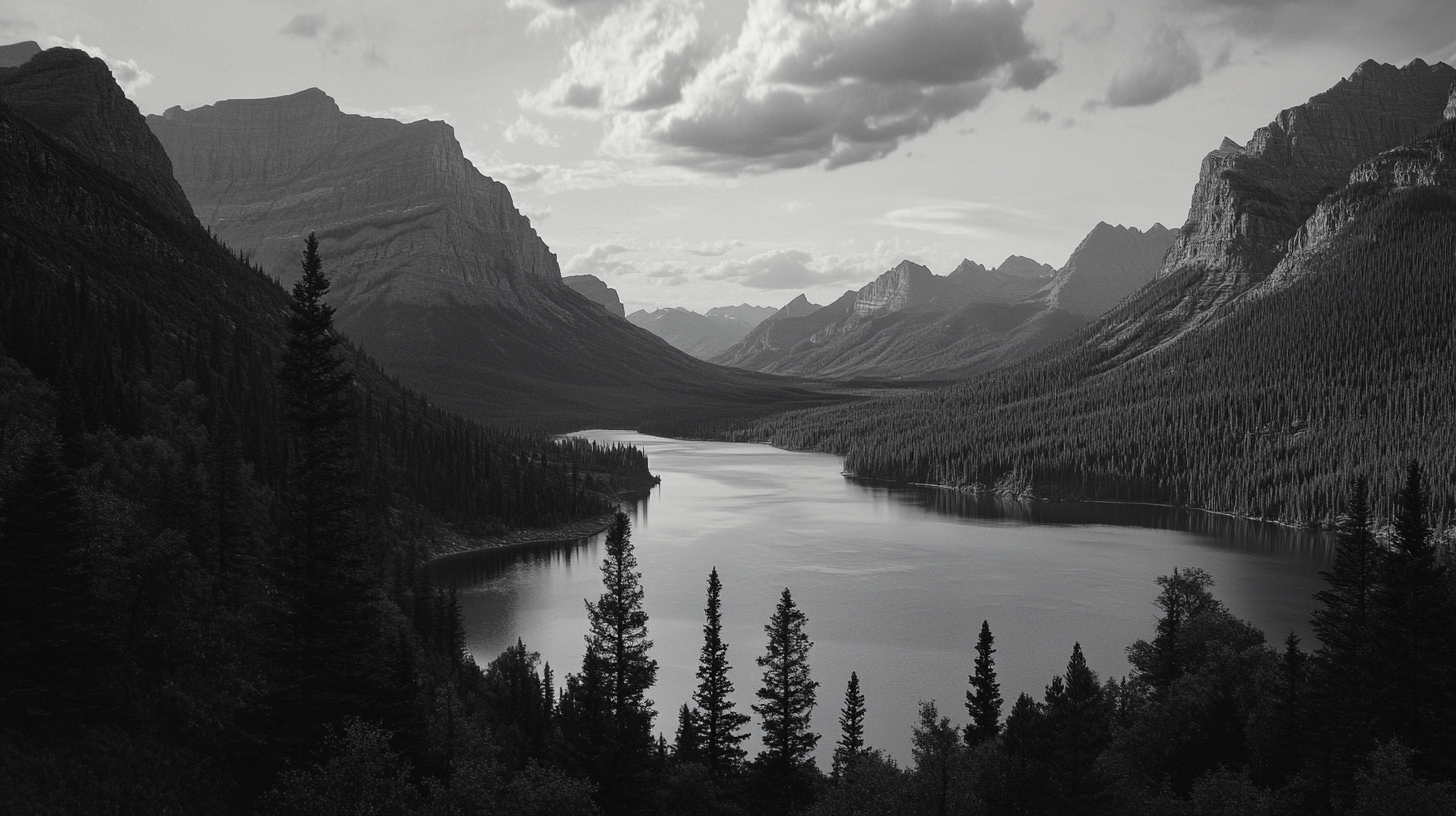
Known as the “Crown of the Continent,” Glacier National Park offers pristine wilderness, alpine meadows, and glacial lakes. Its rugged landscapes are a testament to the power of ancient glaciers that carved the mountains and valleys.
- Scenic Drives: Drive the Going-to-the-Sun Road for unparalleled mountain views. This engineering marvel twists and turns through the heart of the park, offering access to breathtaking overlooks and trailheads.
- Extensive Trails: With over 700 miles of hiking trails, including the popular Highline Trail, hikers can immerse themselves in untouched wilderness. Trails lead to hidden waterfalls, sparkling lakes, and remote campsites under star-filled skies.
- Wildlife Encounters: Opportunities to see mountain goats perched on rocky cliffs, grizzly bears roaming meadows, and moose wading in marshy areas abound. The park’s rich biodiversity is a living classroom for nature enthusiasts.
7. Zion National Park, Utah
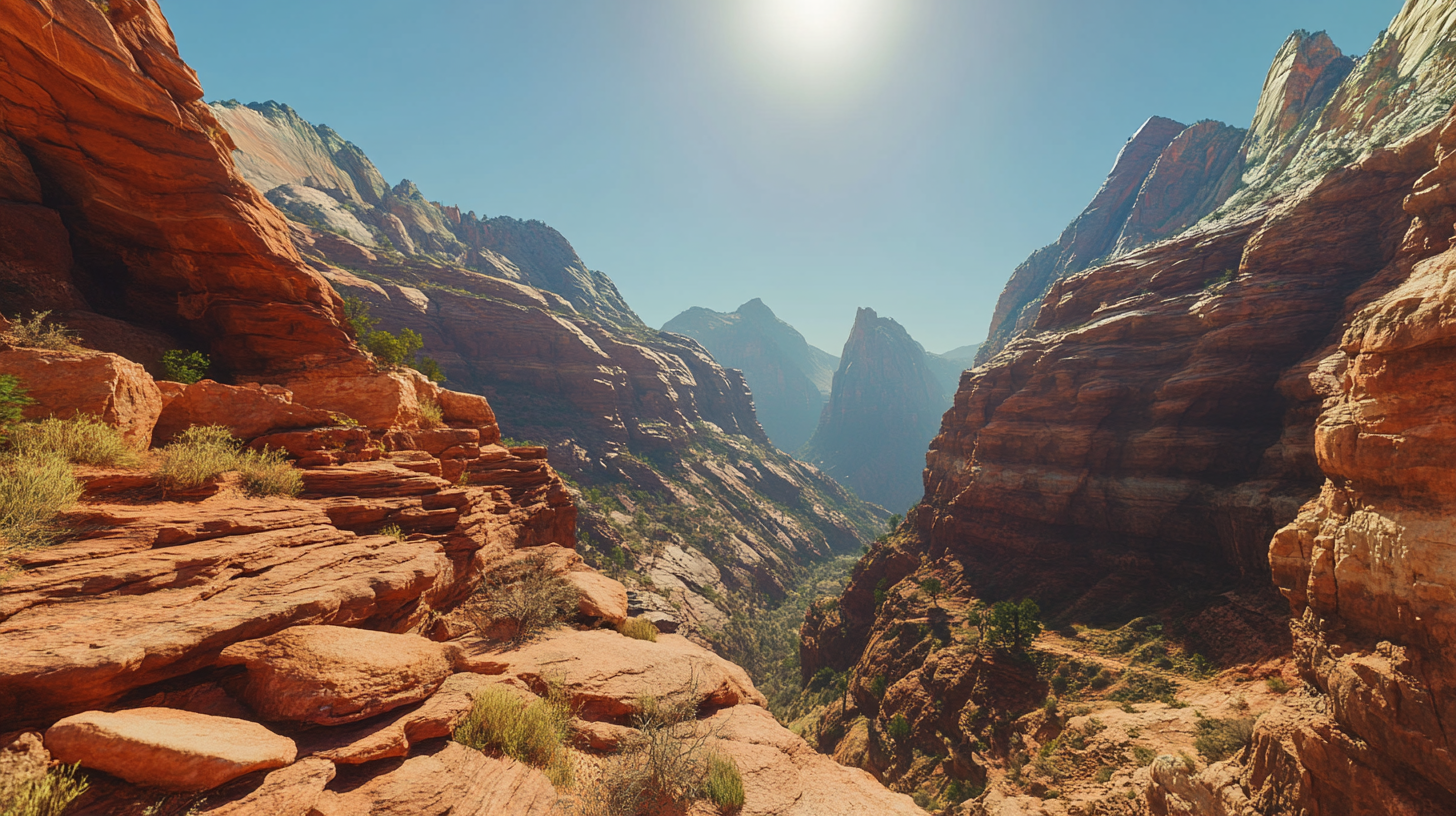
Zion captivates visitors with its towering sandstone cliffs, narrow slot canyons, and diverse ecosystems. The park’s unique geography creates a range of habitats, supporting a rich variety of plant and animal life.
- Epic Hikes: Challenge yourself with hikes like Angels Landing, where a narrow ridge with steep drop-offs leads to a summit with breathtaking views, or trek through The Narrows, wading in the Virgin River as it winds through towering canyon walls. Safety tips and preparation advice can be found in Hiking Safely in Zion’s Challenging Trails .
- Scenic Beauty: Enjoy dramatic waterfalls like Emerald Pools and panoramic views along Zion Canyon Scenic Drive. The interplay of light and shadow on the red rock formations creates a photographer’s paradise.
- Rich Biodiversity: Home to a variety of plant and animal species unique to the region, Zion’s ecosystems range from desert lowlands to high plateaus. Rare species like the California condor can be spotted soaring above the cliffs.
8. Grand Canyon National Park, Arizona
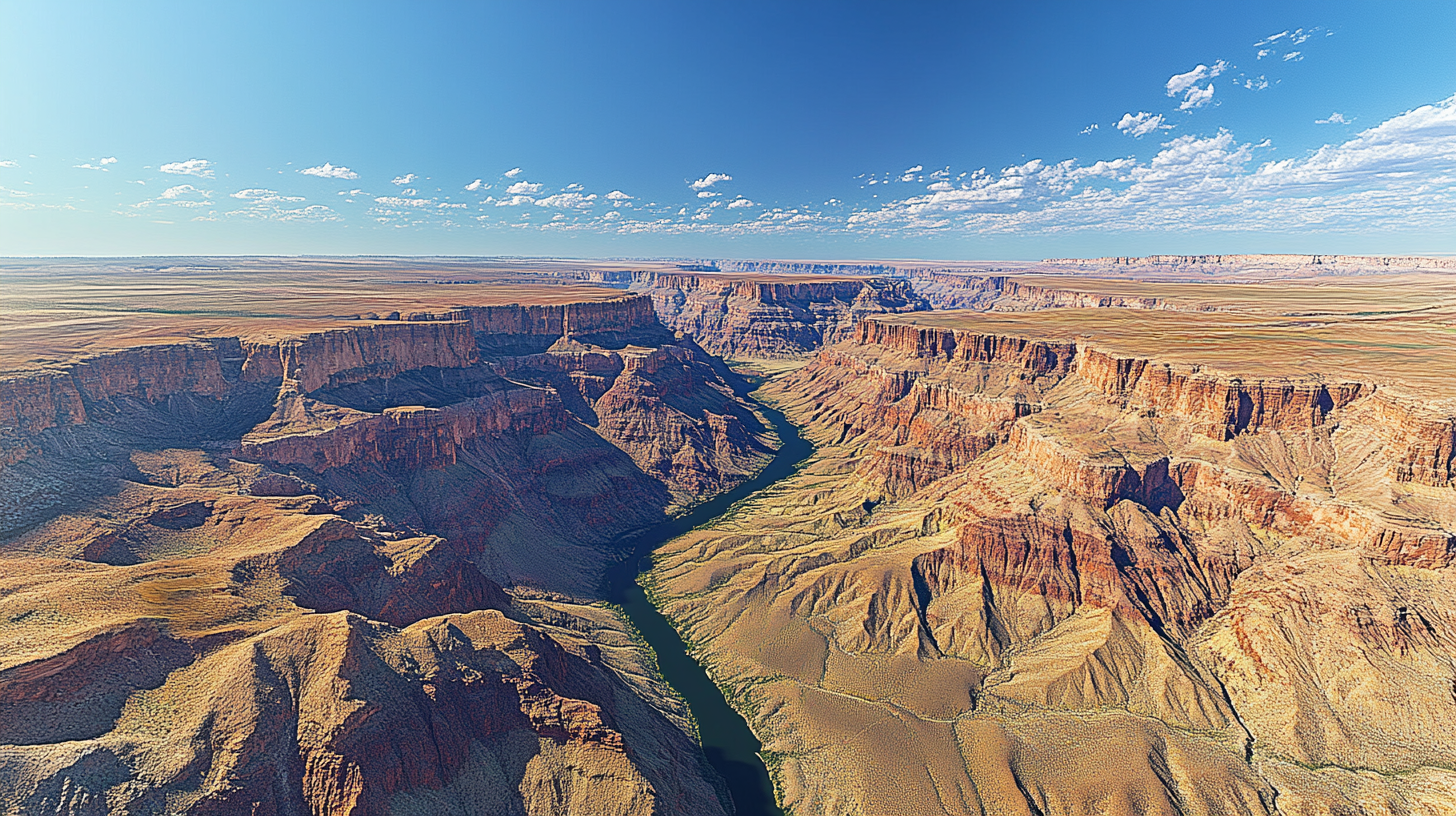
A UNESCO World Heritage Site, the Grand Canyon is an immense natural wonder carved by the Colorado River over millions of years. Its immense size and intricate landscape evoke a sense of wonder in all who visit.
- Stunning Vistas: Experience the vastness from viewpoints along the South Rim and North Rim. Each offers unique perspectives of the layered rock formations that reveal Earth’s geological history.
- Outdoor Exploration: Hiking trails like the Bright Angel Trail allow visitors to descend into the canyon, experiencing its grandeur from within. Mule rides and river rafting trips on the Colorado River provide alternative ways to explore the depths of the canyon.
- Cultural Heritage: Rich in Native American history, the Grand Canyon has been inhabited for thousands of years. Ancient dwellings and artifacts offer insights into the lives of the Ancestral Puebloans and other indigenous peoples.
9. Arches National Park, Utah
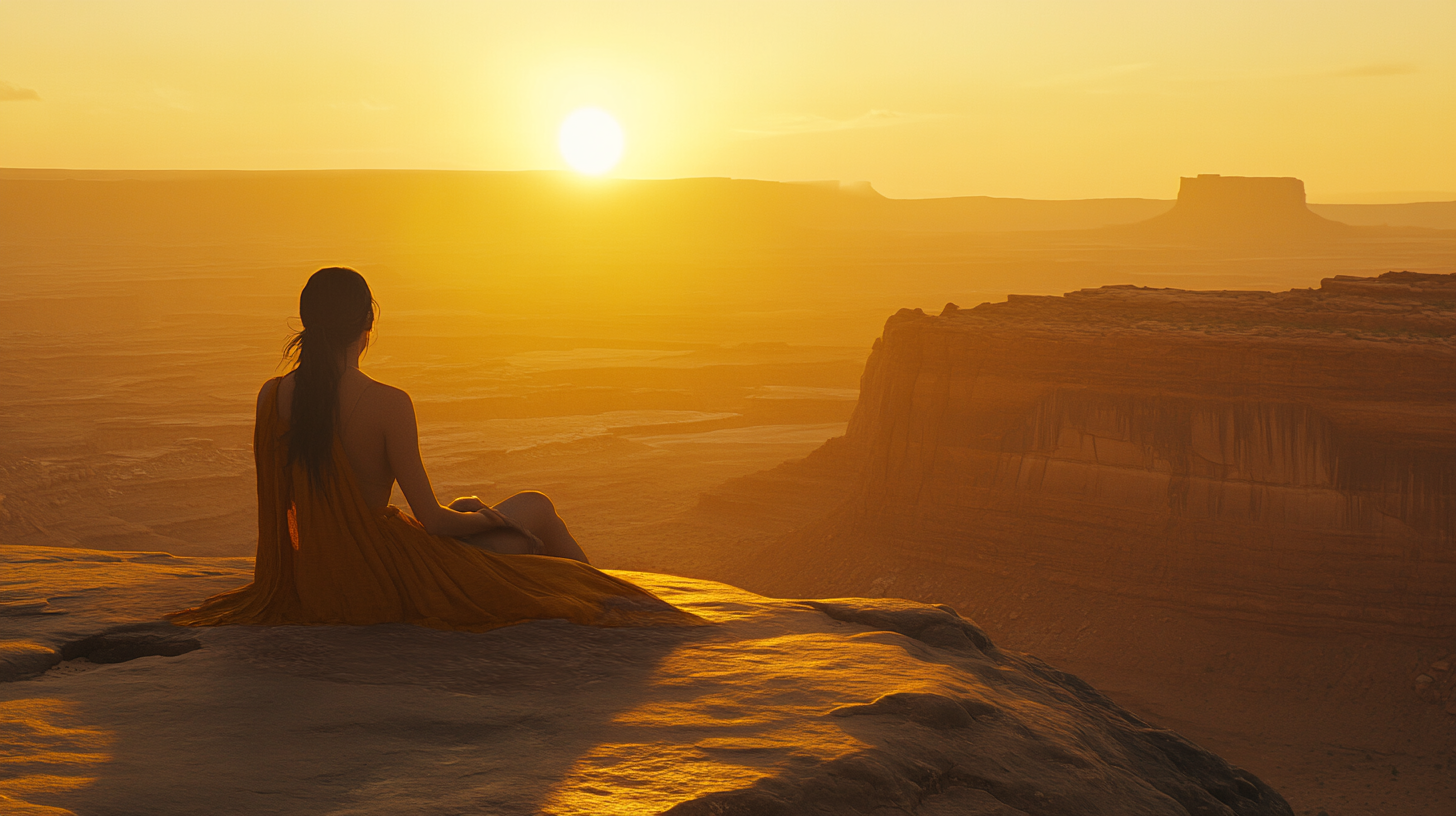
Arches National Park is home to over 2,000 natural sandstone arches, offering some of the most unique geological formations in the world. The delicate shapes and bold colors create a landscape that feels almost otherworldly.
- Iconic Formations: Don’t miss Delicate Arch, a freestanding arch that has become a symbol of Utah, Landscape Arch, one of the longest natural stone spans in the world, and Balanced Rock, which defies gravity atop its pedestal.
- Adventure Activities: Ideal for hiking, rock climbing, and photography, the park invites exploration. Trails range from short walks to longer hikes that lead to secluded arches and viewpoints.
- Spring Visits: March provides mild temperatures perfect for exploration, with blooming wildflowers adding splashes of color to the desert landscape. Planning tips for seasonal visits are available in Best Times to Visit Arches National Park .
10. Acadia National Park, Maine

Acadia offers a rugged coastal experience with rocky shorelines, forested trails, and granite peaks. It showcases the beauty of the Atlantic coast, where mountains meet the sea.
- Cadillac Mountain: Be among the first in the U.S. to witness the sunrise from its summit, especially during fall and winter months. The panoramic views encompass the surrounding islands and ocean.
- Trail Networks: Over 120 miles of historic hiking trails and carriage roads designed by philanthropist John D. Rockefeller Jr. provide access to the park’s diverse landscapes, suitable for hiking, biking, and horseback riding.
- Popular Destination: Attracting nearly 3.9 million visitors in 2023, Acadia’s popularity is a testament to its enchanting beauty. Tips for navigating crowds and finding quiet spots can enhance your visit.
11. Rocky Mountain National Park, Colorado
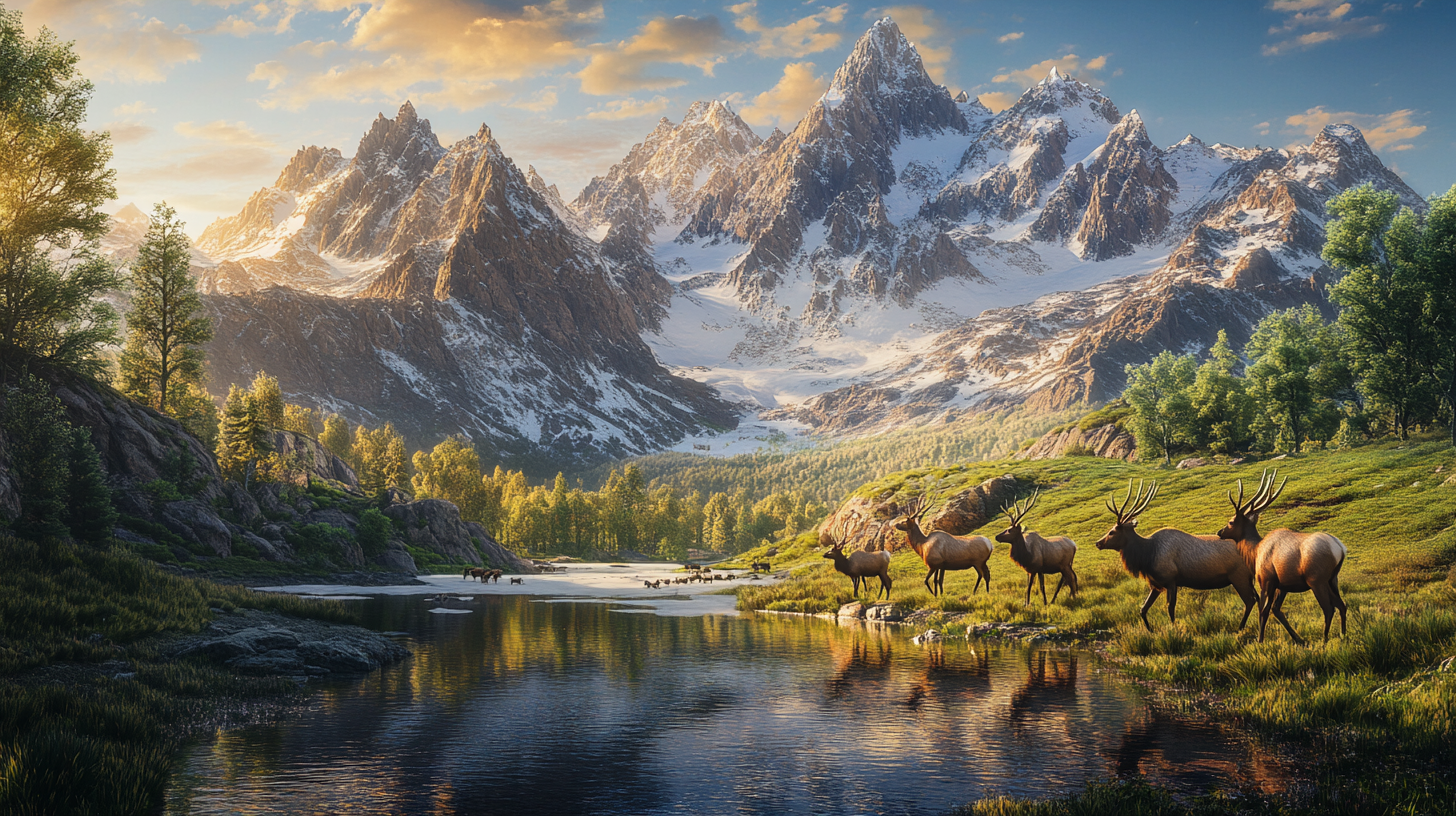
This park showcases the grandeur of the Rocky Mountains, with majestic peaks, alpine lakes, and abundant wildlife. The Continental Divide runs through the park, influencing climate and ecosystems.
- Scenic Trails: Popular hikes include Chasm Lake, offering dramatic views beneath Longs Peak, and Bear Lake Trail, an accessible path that circles a serene alpine lake surrounded by towering pines.
- Wildlife Viewing: Spot elk bugling in the meadows during fall, mule deer grazing near trails, and bighorn sheep navigating rocky terrains. The park is also home to diverse bird species and smaller mammals.
- Outdoor Activities: Hiking, camping, and scenic drives along Trail Ridge Road, the highest continuous paved road in the U.S., provide opportunities to experience the park’s beauty from various perspectives.
12. Death Valley National Park, California and Nevada
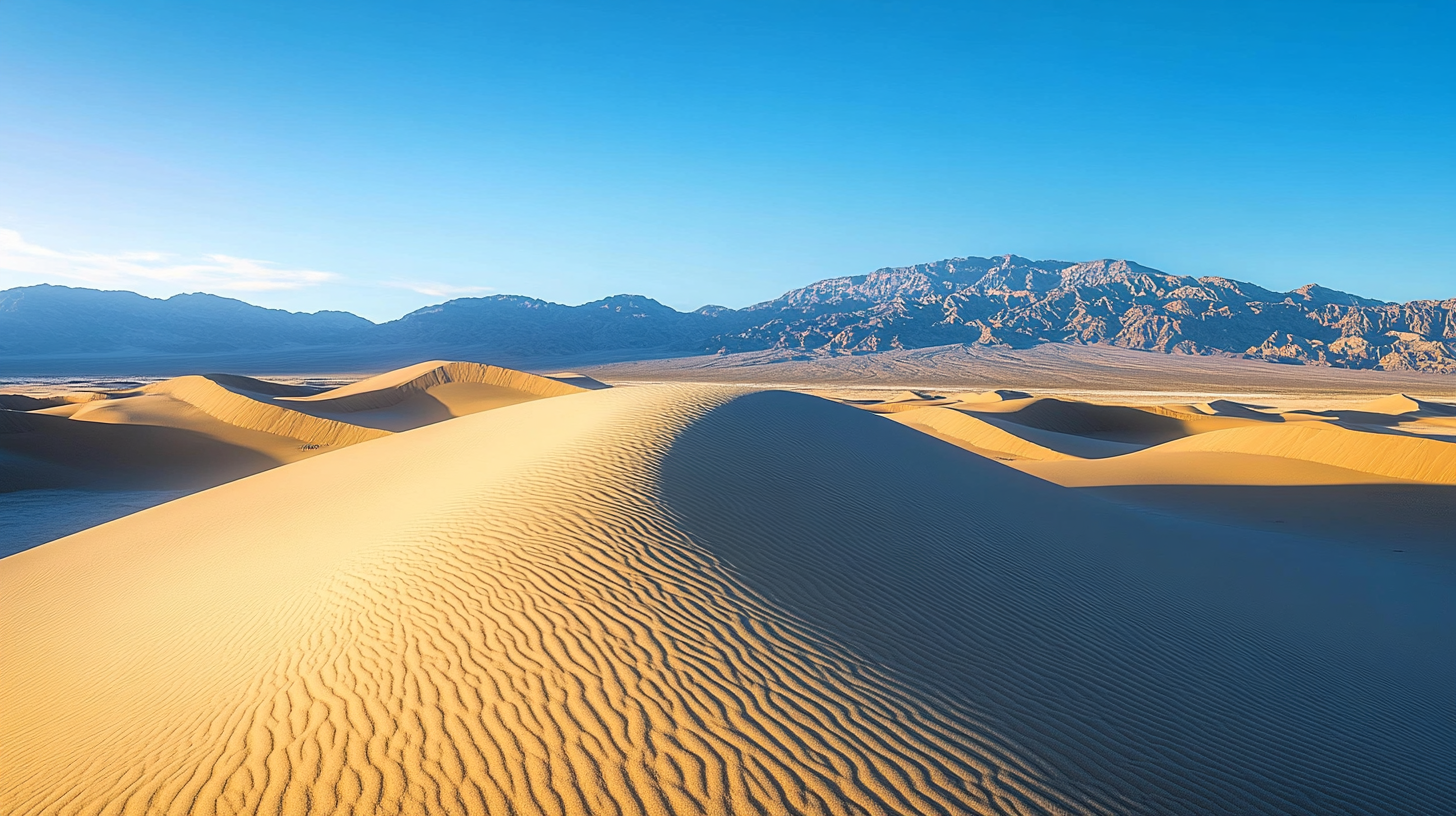
Ranked 13th by the Pattiz Brothers, Death Valley is a land of extremes, known for its scorching temperatures and unique desert landscapes. It holds the record for the highest air temperature ever recorded on Earth.
- Lowest Point: Visit Badwater Basin, the lowest point in North America at 282 feet below sea level. The vast salt flats create a surreal environment that’s both stark and beautiful.
- Stargazing: Designated as a Dark Sky Park, Death Valley offers exceptional night sky views. The absence of light pollution reveals the Milky Way in stunning detail, a sight explored in Stargazing in Death Valley National Park .
- Winter Appeal: Milder temperatures make it ideal for winter visits. The cooler months unveil the park’s diverse landscapes, from sand dunes to colorful hills, without the intense heat of summer.
13. Big Bend National Park, Texas
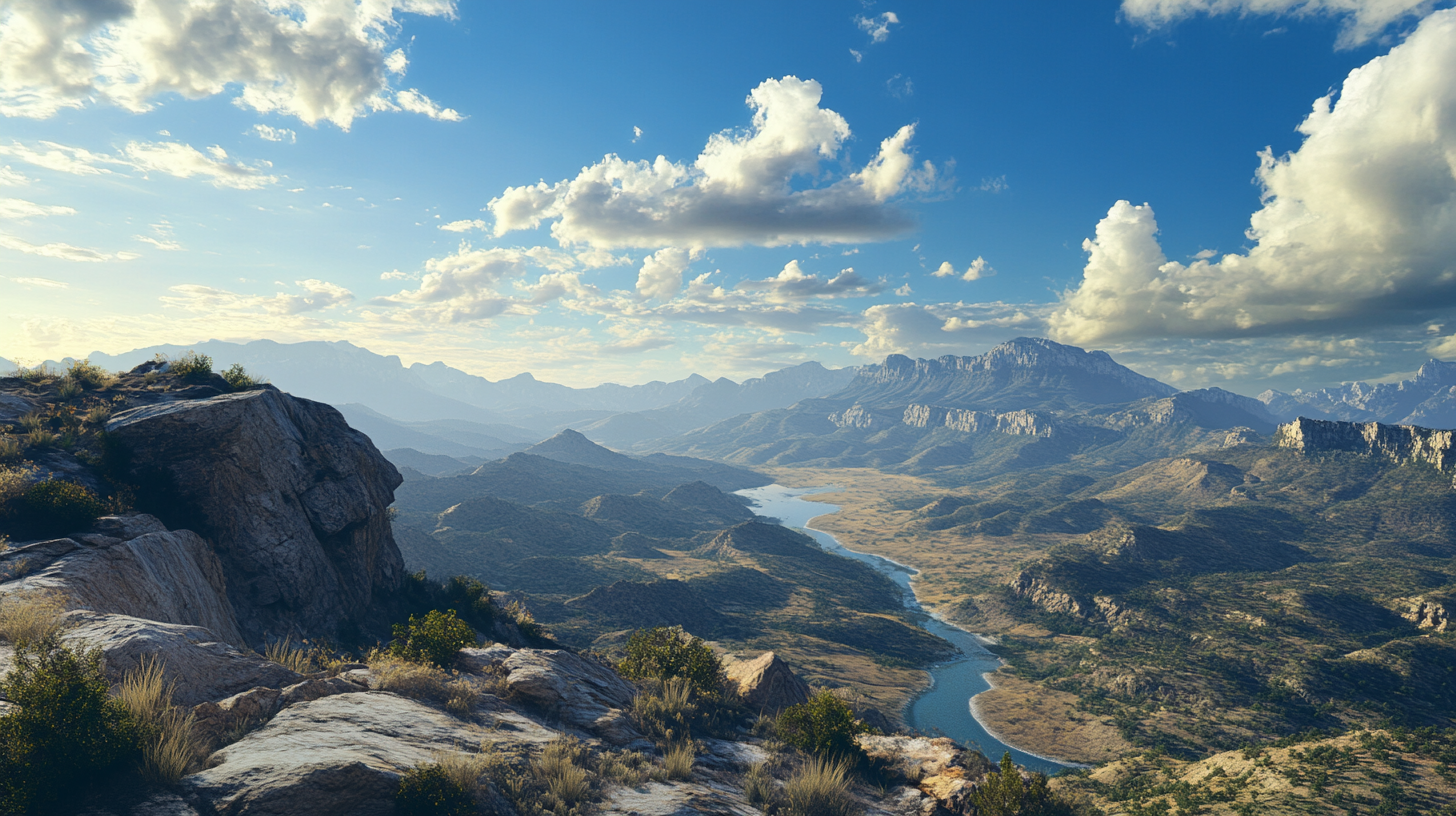
Big Bend is a remote haven featuring vast desert landscapes, the Chisos Mountains, and the meandering Rio Grande. Its isolation contributes to a tranquil atmosphere, ideal for those seeking solitude.
- Desert Beauty: Explore the unique flora and fauna of the Chihuahuan Desert, where resilient plants like ocotillo and agave thrive. The desert blooms in spring, transforming the landscape with vibrant colors.
- Outdoor Recreation: Hiking trails lead to scenic vistas and hidden canyons. Canoeing or rafting the Rio Grande offers a unique perspective of the park’s geological features, such as the Santa Elena Canyon.
- Dark Skies: Exceptional for stargazing due to minimal light pollution, Big Bend’s night skies reveal constellations and celestial phenomena rarely seen elsewhere.
14. Sequoia National Park, California
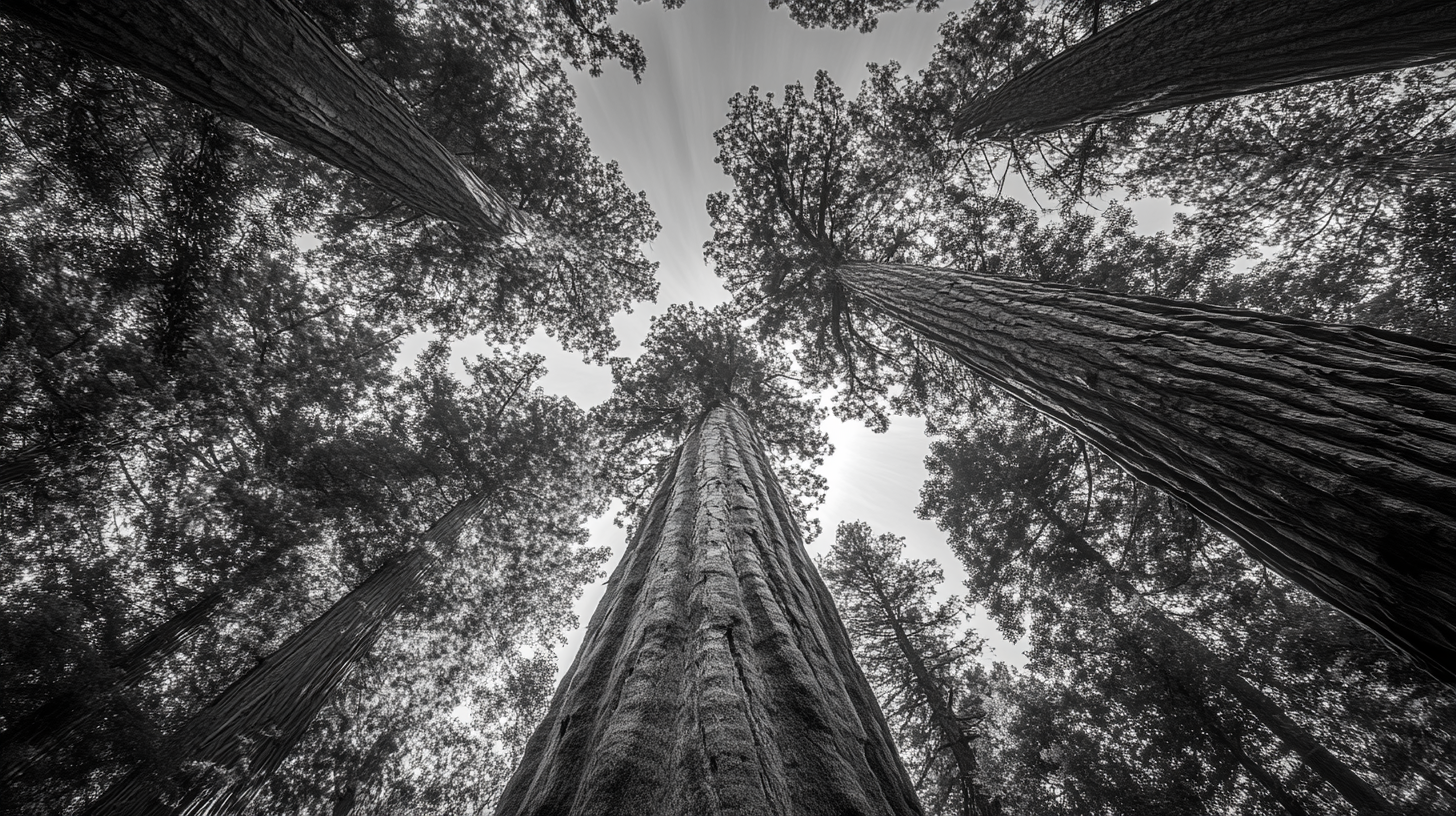
Home to the giant sequoias, including the General Sherman Tree, Sequoia National Park inspires awe with its ancient forests and mountainous landscapes. The sheer size of these trees offers a humbling experience.
- Giant Trees: Walk among some of the largest trees on Earth in the Giant Forest. The General Sherman Tree, estimated to be over 2,200 years old, stands as a testament to nature’s enduring strength.
- Cave Exploration: Explore subterranean wonders like Crystal Cave, a marble cavern adorned with ornate formations. Guided tours reveal the underground beauty hidden beneath the park’s surface.
- Scenic Views: Enjoy panoramic vistas from Moro Rock, a granite dome providing sweeping views of the Great Western Divide and the surrounding valleys. Sunset from this vantage point is particularly breathtaking.
15. Hawai‘i Volcanoes National Park, Hawaii
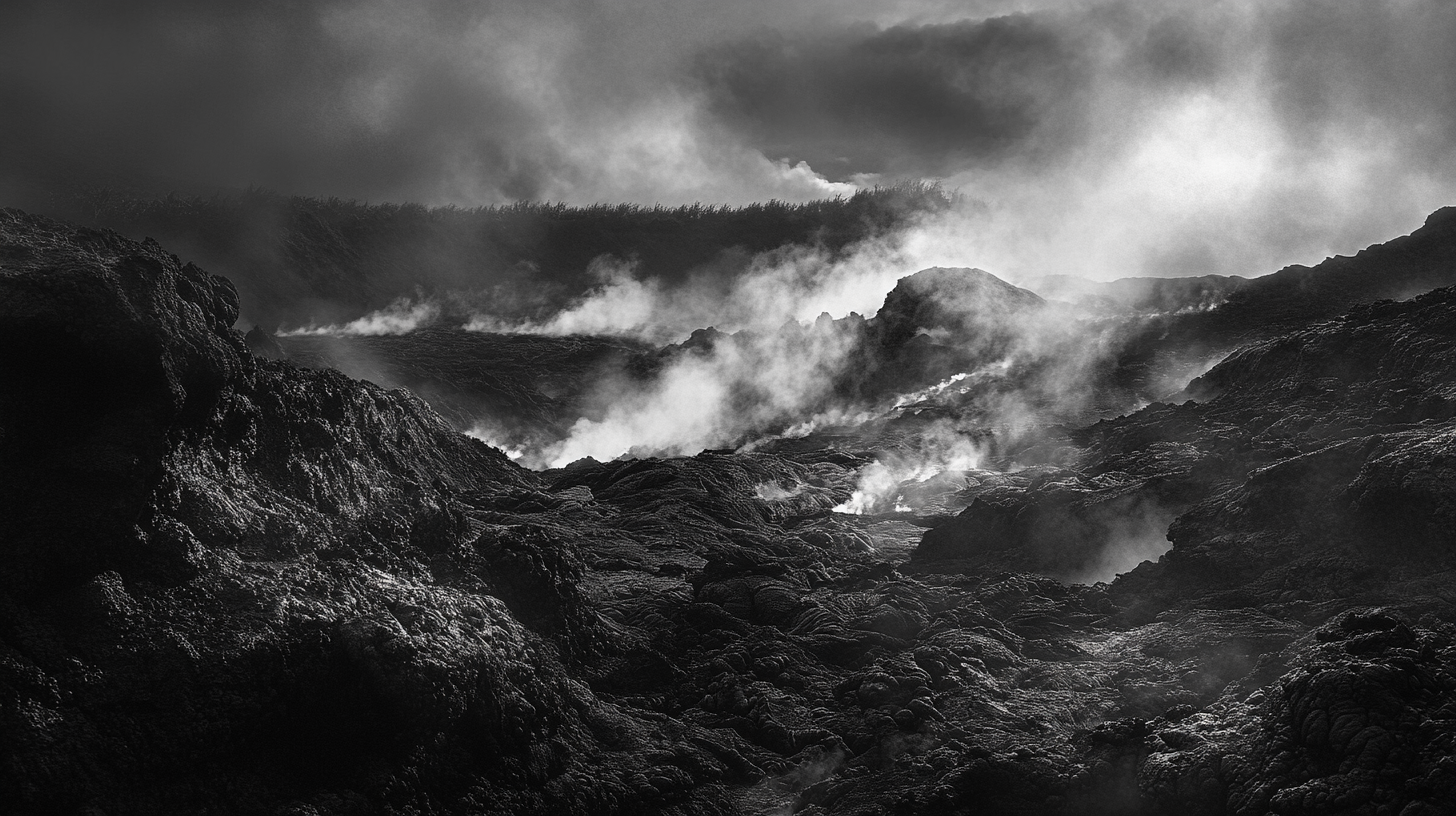
This park offers a unique blend of active volcanism, cultural sites, and ecological diversity. It provides a rare opportunity to witness the creation of new land firsthand.
- Active Volcanoes: Witness the power of Kīlauea and Mauna Loa, two of the world’s most active volcanoes. Viewing lava flows and volcanic landscapes is a transformative experience, detailed in Visiting Active Volcanoes Safely in Hawaii .
- Cultural Significance: Discover sacred Hawaiian sites and learn about native traditions deeply connected to the land. The park preserves archaeological sites and offers interpretive programs to educate visitors.
- Dynamic Landscapes: Hike through volcanic craters, steam vents, and lava tubes like Thurston Lava Tube, where you can walk through a tunnel formed by flowing lava centuries ago.
Planning Your Visit
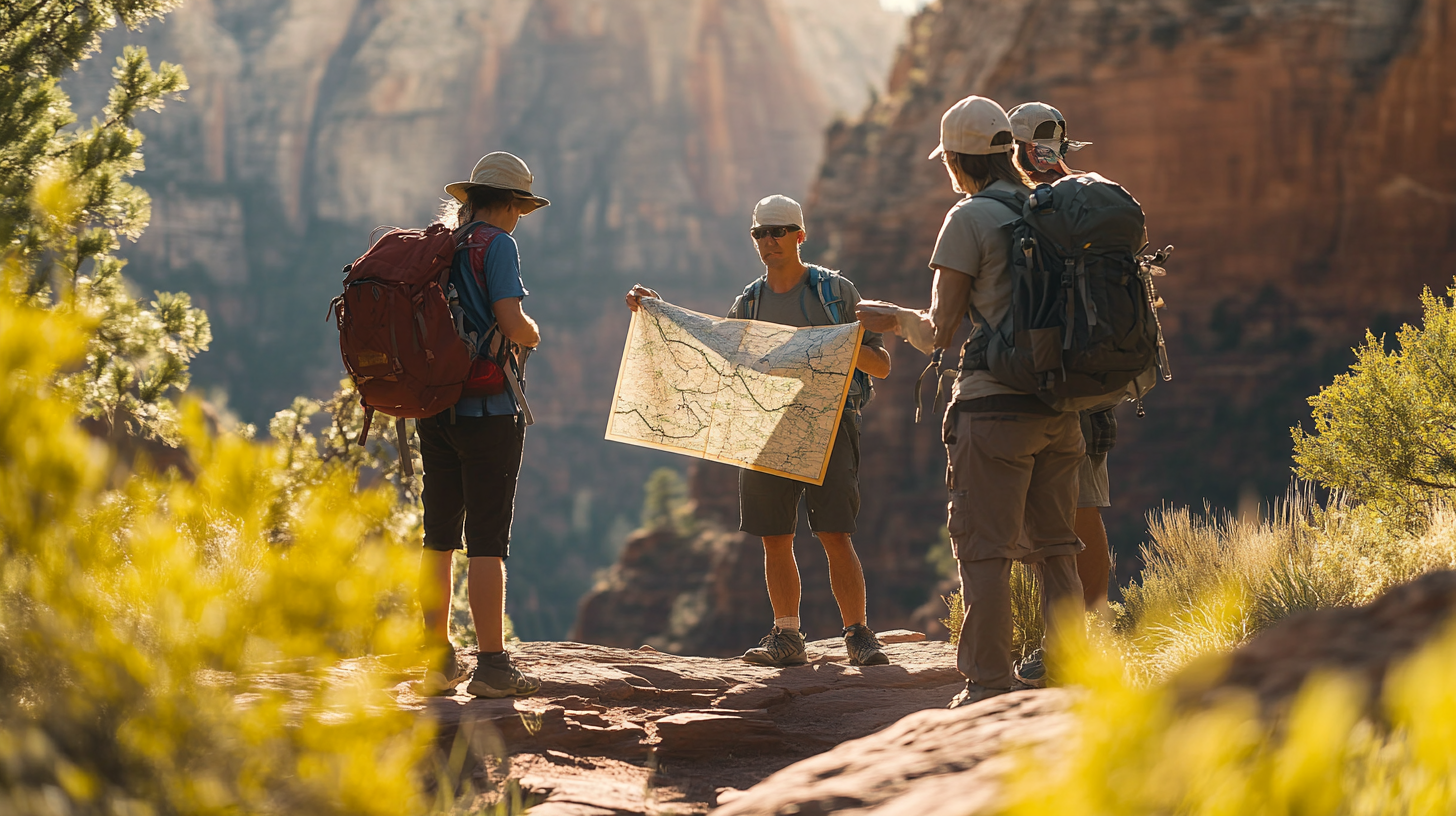
When exploring these national treasures, consider the following tips to enhance your experience:
- America the Beautiful Pass: Invest in a U.S. Park Pass to save on entrance fees. This annual pass provides access to more than 2,000 federal recreation sites, making it valuable for avid park-goers.
- Check Entry Requirements: Some parks require reservations or have specific entry protocols, especially during peak seasons or for popular attractions. Researching ahead ensures a smooth visit.
- Best Times to Visit: Research the ideal seasons for each park to avoid crowds and enjoy favorable weather. Factors like wildflower blooms, fall foliage, or wildlife migrations can enhance your experience.
- Responsible Travel: Practice Leave No Trace principles to help preserve the parks. Respect wildlife, stay on designated trails, and carry out all trash to minimize your impact on these natural environments.
Final Thoughts
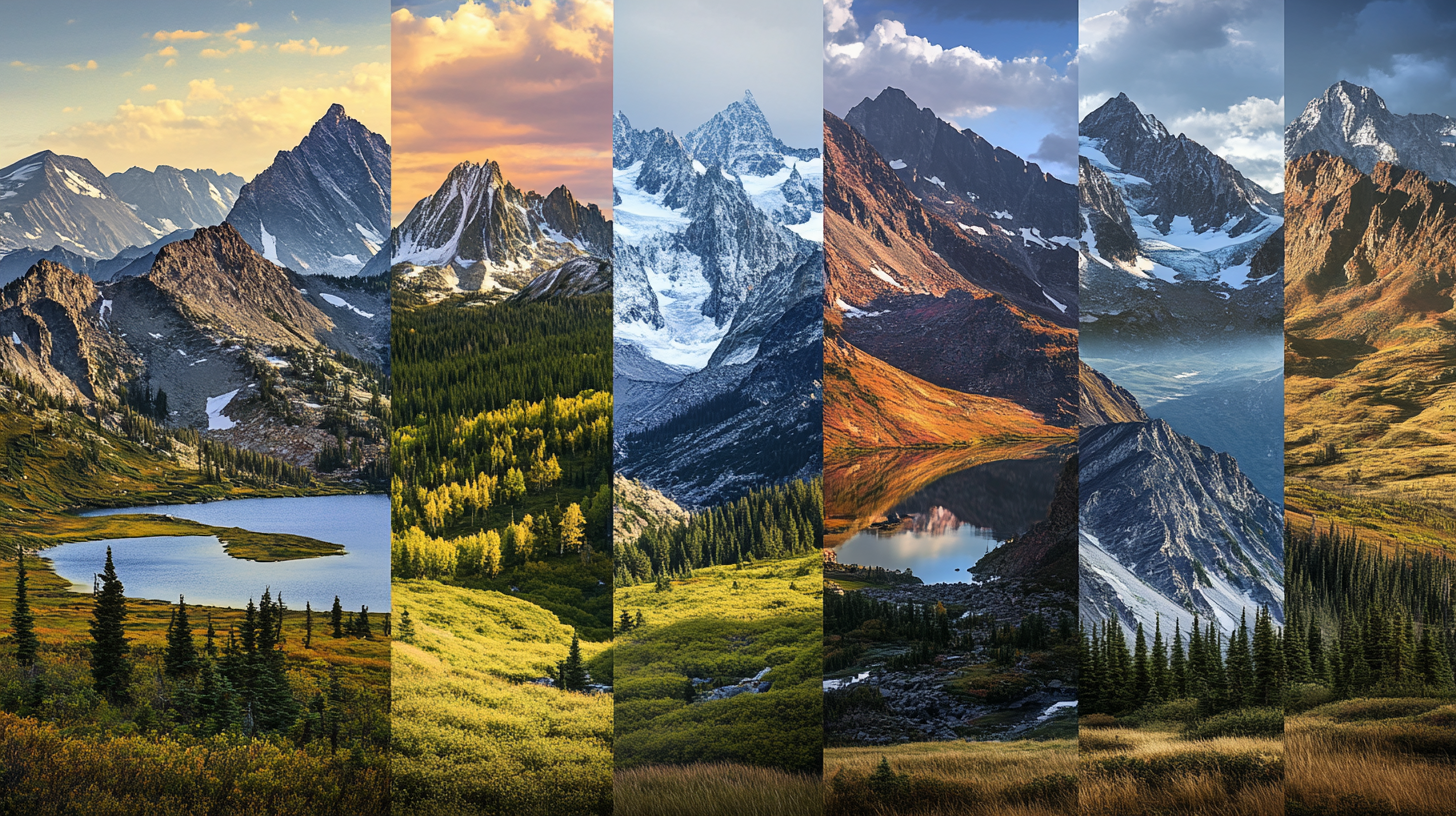
From the geothermal wonders of Yellowstone to the towering sequoias of California, the national parks of the USA offer unparalleled opportunities to connect with nature and explore the country’s diverse landscapes. Each park tells a story, not just of the natural world but of the cultural and historical threads woven into the fabric of the nation. Whether you’re seeking adventure in the rugged mountains, tranquility beside a serene lake, or a deeper understanding of America’s natural heritage, these parks provide experiences that are both inspiring and transformative.
Follow us back to BoardingArea for more travel inspiration and tips. Embark on an unforgettable journey through some of the most remarkable places on Earth, and let the beauty of these landscapes leave a lasting impression on your heart and soul.
This blog post was AI-written / human assisted.
What's Your Reaction?

























